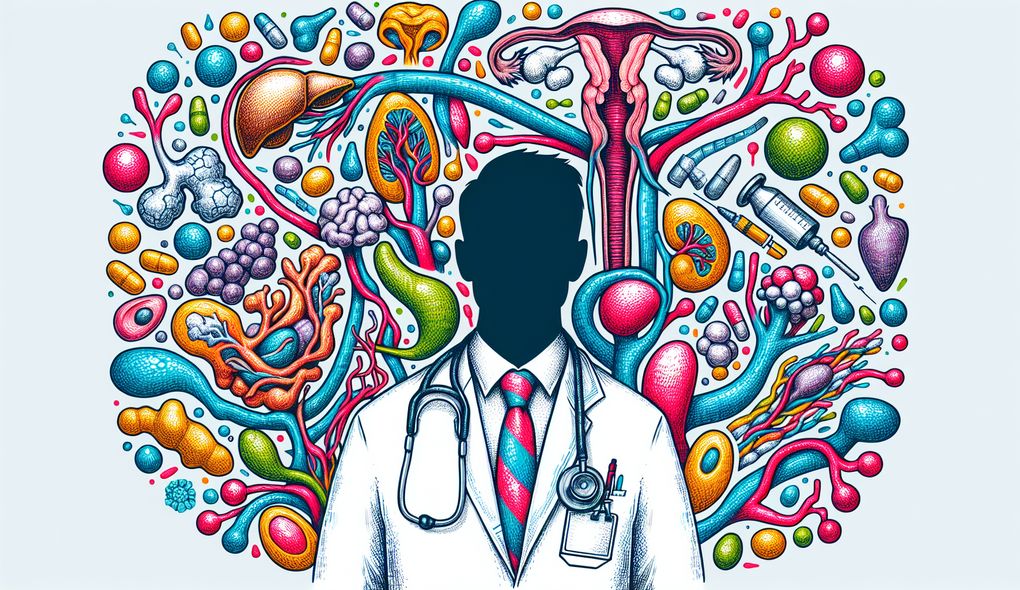What steps do you take to monitor and evaluate patient progress?
INTERMEDIATE LEVEL

Sample answer to the question:
To monitor and evaluate patient progress, I regularly review their medical records and perform physical examinations. I also order diagnostic tests like bloodwork and imaging studies to assess their condition. Additionally, I track their vital signs, such as blood pressure, heart rate, and blood sugar levels. I make sure to communicate with the patients to understand how they are feeling and if there are any changes in their symptoms. Based on all this information, I then analyze the data, compare it to previous results, and make adjustments to their treatment plan if necessary.
Here is a more solid answer:
As an Endocrinologist, monitoring and evaluating patient progress is a crucial part of my role. I begin by conducting thorough patient evaluations, including a detailed medical history and physical examination. I order specific diagnostic tests to assess their endocrine-related conditions and closely analyze the results, comparing them to previous values. This helps me track the effectiveness of the treatment plan and make necessary adjustments. I also monitor their vital signs, such as blood pressure and blood sugar levels, and maintain regular communication with patients to ensure their symptoms are managed effectively. Additionally, I collaborate with other healthcare providers, such as diabetes educators and nutritionists, to ensure comprehensive patient care. This approach allows me to employ my expert knowledge of the endocrine system and related diseases, strong diagnostic and problem-solving skills, proficiency in managing chronic diseases like diabetes and thyroid disorders, excellent patient communication and counseling abilities, and strong teamwork and collaboration skills with other healthcare providers.
Why is this a more solid answer?
The solid answer provides specific details about the steps taken to monitor and evaluate patient progress, addressing all the evaluation areas and skills mentioned in the job description. It also emphasizes collaboration with other healthcare providers, which is important for comprehensive patient care. However, it can be further improved by including examples of specific diagnostic tests and techniques used to monitor patient progress.
An example of a exceptional answer:
Monitoring and evaluating patient progress is a multifaceted process that I approach with a comprehensive and patient-centered mindset. I begin by conducting thorough patient evaluations, gathering detailed information about their medical history, symptoms, and lifestyle factors. This allows me to better understand the individual nuances of their condition. To assess their endocrine-related conditions, I employ a range of diagnostic tests, including hormonal assays, imaging studies, and specialized procedures like glucose tolerance tests. By analyzing the results and comparing them to previous values, I identify trends and make data-driven treatment decisions. Additionally, I utilize advanced technologies, such as continuous glucose monitoring devices, to gain real-time insights into patients' glucose levels and make timely adjustments to their treatment plans. Apart from objective measurements, I prioritize open and empathetic communication with patients, regularly discussing their symptoms, concerns, and treatment goals. This helps me gauge their subjective experience and ensure their emotional well-being is taken into account. Furthermore, I collaborate closely with a multidisciplinary team, including diabetes educators, dietitians, and mental health professionals, to provide holistic care. By leveraging my expert knowledge of the endocrine system, strong diagnostic and problem-solving skills, proficiency in managing chronic diseases like diabetes and thyroid disorders, excellent patient communication and counseling abilities, and strong teamwork and collaboration skills, I strive to continuously monitor and evaluate patient progress in the most effective and personalized manner.
Why is this an exceptional answer?
The exceptional answer provides a thorough and detailed explanation of the steps taken to monitor and evaluate patient progress. It includes specific examples of diagnostic tests and techniques used and highlights the use of advanced technologies and multidisciplinary collaboration. The answer demonstrates expert knowledge of the endocrine system, strong diagnostic and problem-solving skills, proficiency in managing chronic diseases, excellent patient communication and counseling abilities, and strong teamwork and collaboration skills. It goes above and beyond the basic and solid answers by emphasizing the importance of individualized care, empathetic communication, and continuous improvement.
How to prepare for this question:
- Familiarize yourself with the different diagnostic tests and techniques used in endocrinology, such as hormonal assays and glucose tolerance tests.
- Stay updated on the latest advancements in endocrinology and related research to ensure you are aware of emerging techniques and technologies.
- Practice active listening and communication skills during patient interactions to ensure you can effectively gauge their subjective experience and provide personalized care.
- Develop strong teamwork and collaboration skills by seeking opportunities to work with other healthcare providers, attending interdisciplinary meetings, and participating in team-based projects.
- Reflect on your past experiences in monitoring and evaluating patient progress and identify specific examples that highlight your expertise in the evaluation areas mentioned in the job description.
- Consider the importance of patient-centered care and the impact of emotional well-being on patient progress. Think about how you can effectively address these aspects in your monitoring and evaluation process.
What are interviewers evaluating with this question?
- Expert knowledge of the endocrine system and related diseases
- Strong diagnostic and problem-solving skills
- Proficiency in managing chronic diseases like diabetes and thyroid disorders
- Excellent patient communication and counseling abilities
- Strong teamwork and collaboration skills with other healthcare providers

